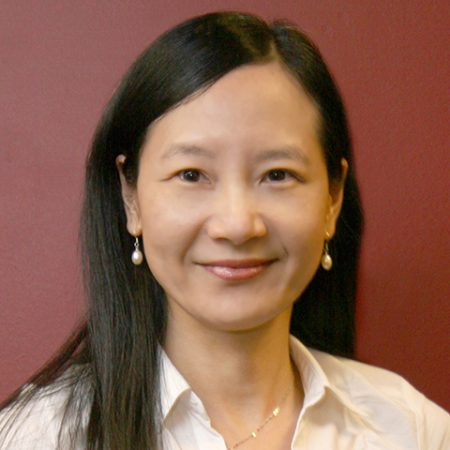
Whether it is business or personal, more and more human interaction is happening in an online environment. But, how do you know if you can trust the person on the other end of the connection? The simple answer is most people don’t.
So, Shuyuan Mary Ho, an assistant professor in the School of Information in the College of Communication and Information at Florida State University and an expert in cybersecurity, built a software application that can assess a human’s disposition and identify potential dangerous behaviors.
“Organizations are becoming more virtual and employees are being pulled in from all over the world to collaborate on a project,” Ho said. “In situations like this, all we can do is try to understand their communication patterns to understand their information behavior.”
Ho was recently awarded a $50,000 I-Corps grant by the National Science Foundation to test the marketability of the product over the next six months.
“We are investigating the market viability of a technology that represents a trustworthiness inference engine that works by analyzing online communications,” she said.
Corporations, government organizations —and even people looking for a date —communicate daily in cyberspace, but lots of them have never had a face-to-face meeting or even talked on the phone with one another.
“Sometimes you know them, sometimes you don’t,” Ho said. “If you’ve never met who you’re communicating with, then all the evidence you have is basically just the online communication.”
Through research funded by a previous NSF grant, Ho and researchers from Cornell University simulated an environment in online games to pose different types of threats like fraud, deception and betrayal.
“This type of behavior is very predictable based on the language cues that we’re able to identify,” Ho said.
With those findings, Ho built a software application that analyzes human communication based on online conversations and behaviors that can discern a person’s intent.
“This software application can be thought of as a form of artificial intelligence for detecting changes in users’ motivation and trustworthiness,” Ho said. “Using a variety of mechanisms, this system creates a statistical user profile and learns about users’ information behavior patterns based on language and dialogue with other users in social media communication.”
The application can potentially be used by law enforcement and government agencies, the military, defense contractors and big corporations like Microsoft or Google, which have a lot of trade secrets or intellectual property.
“A person’s level of trust can change, so it is a very dynamic relationship,” Ho said. “It’s not like security clearance where you do a background check of someone and that person stays in the same position for 10 or 20 years without any change. The trustability of a person can change and vary in a way that it is a good idea to learn about the person and how stable they are even before you have facial cues.”
NSF I-Corps grants foster entrepreneurship that enables NSF-funded researchers and graduate students to explore commercializingtechnology that has resulted from their research. In addition to the grant, the program also provides a short course on business development for the team.
Ho is the principal investigator on the three-person I-Corps team. Laura Clark, a doctoral candidate in the School of Information, serves as the entrepreneurial lead and Phil Hilpol, who has extensive industry knowledge and experience, is the business mentor.




